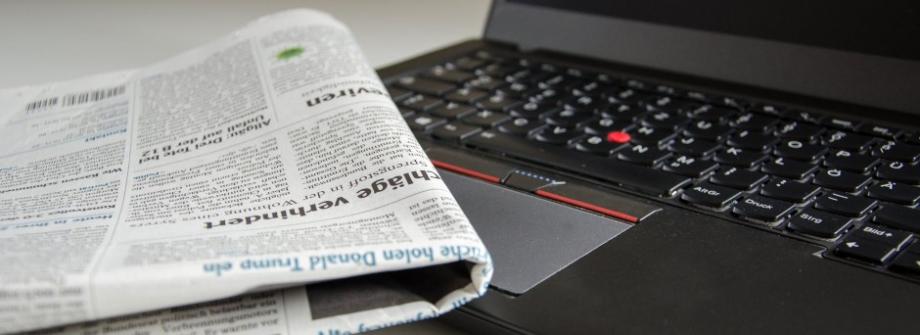
Daniel Wolff, Chair of the German-Austrian-Swiss GVHD Consortium, comments on the publication entitled “ROCK2 Inhibition With Belumosudil (KD025) for the Treatment of Chronic Graft-Versus-Host Disease.”, published in JCO.
ROCK2 Inhibition With Belumosudil (KD025) for the Treatment of Chronic Graft-Versus-Host Disease.
Jagasia M et al
J Clin Oncol. 2021 Jun 10;39(17):1888-1898. doi: 10.1200/JCO.20.02754.PMID: 33877856
Article summary
Steroid-refractory chronic Graft-versus-Host disease (cGvHD) remains to be associated with significant morbidity and mortality and requires protracted treatment frequently associated with significant side effects and low response rates ranging from 30-60%. The rho-associated coiled-coil-containing protein kinase-2 (ROCK2) signaling pathway regulates the Th17/regulatory T cells balance and controls profibrotic pathways involved in cGvHD. Therefore, selective ROCK2 inhibition with belumosudil (KD025) may offer a novel targeted approach to the management of cGvHD. Belumosudil was evaluated within a phase IIa, open-label, dose-finding study enrolling 54 patients with steroid-refractory cGVHD with a median time from cGVHD diagnosis to enrollment of 20 months. The majority of patients (78%) had severe cGvHD and half of the patient had more than 3 organs involved and failed more than 2 lines of prior treatment. With a median follow-up of 29 months, the overall response rate on belumosudil ranged between 62% and 69% across the 3 dose groups with clinically meaningful improvement and corticosteroid (CS) dose reductions and CS were even discontinued in 19% of patients. In consequence half of the patients did not require an additional treatment within the first year of treatment with an overall survival of 82% at 2 years. Even more relevant, belumosudil was well-tolerated, with low rates of cytopenia, no unexpected adverse events and no apparent increased risk of infection. In summary, the trial demonstrated a high response rate and overall survival, improvement of quality-of-life with limited toxicity and represents a valuable option in treatment of cGvHD.
Commentary
While the progress in treatment of cGvHD had been rather slow in the past, the NIH consensus on cGvHD in 2005 (updated in 2014) fostered progress and resulted a growing number of treatment options during the past 15 years. Yet basically all treatment used were primarily developed and approved for conditions other than cGvHD and subsequently evaluated in cGvHD. In addition, the majority of these agents come along with significant side effects including risks for infectious complications and fail in a significant proportion of patients. Belumosidol represents for the first time an agent, which has been primarily developed for targeted treatment of cGvHD based on analyses of the molecular and cellular pathways involved in cGvHD and performed successful within 2 phase II trials setting the ground for evaluations within larger trials and hopefully subsequent approval. Most importantly, Belumosudil was well tolerated with a low site effect profile and high response rate despite being evaluated in patients with advanced cGvHD including sclerotic lesions. Together with other recently introduced agents like ruxolitinib, which has already successfully passed a large phase III trial, and other already existing options like ibrutinib and extracorporeal photopheresis, and the recently evaluated CSF 1 receptor antibody axatilimab the challenge remains, to compare these agents within clinical trials and to set the ground for personalized treatment of cGvHD taking into account the clinical and biological heterogeneity of cGvHD.
Recommended articles
1. Cutler CS, Lee AJ, Arai S, et al. Belumosudil for Chronic Graft-versus-Host Disease (cGVHD) After 2 or More Prior Lines of Therapy: The ROCKstar Study. Blood 2021; 10.1182/blood.2021012021
2. Wolff D, Radojcic V, Lafyatis R, et al. National Institutes of Health Consensus Development Project on Criteria for Clinical Trials in Chronic Graft-versus-Host Disease: IV. The 2020 Highly morbid forms report. Transplant Cell Ther 2021; 10.1016/j.jtct.2021.06.001
3. Zeiser R, Blazar BR. Pathophysiology of Chronic Graft-versus-Host Disease and Therapeutic Targets. N Engl J Med 2017; 377: 2565-2579
4. Zeiser R, Polverelli N, Ram R, et al. Ruxolitinib for Glucocorticoid-Refractory Chronic Graft-versus-Host Disease. N Engl J Med 2021; 385: 228-238
5. DeFilipp Z, Couriel DR, Lazaryan A, et al. National Institutes of Health Consensus Development Project on Criteria for Clinical Trials in Chronic Graft-versus-Host Disease: III. The 2020 Treatment of Chronic GVHD Report. Transplant Cell Ther 2021; 10.1016/j.jtct.2021.05.004
6. Wolff D, Fatobene G, Rocha V, et al. Steroid-refractory chronic graft-versus-host disease: treatment options and patient management. Bone Marrow Transplant 2021; 10.1038/s41409-021-01389-5